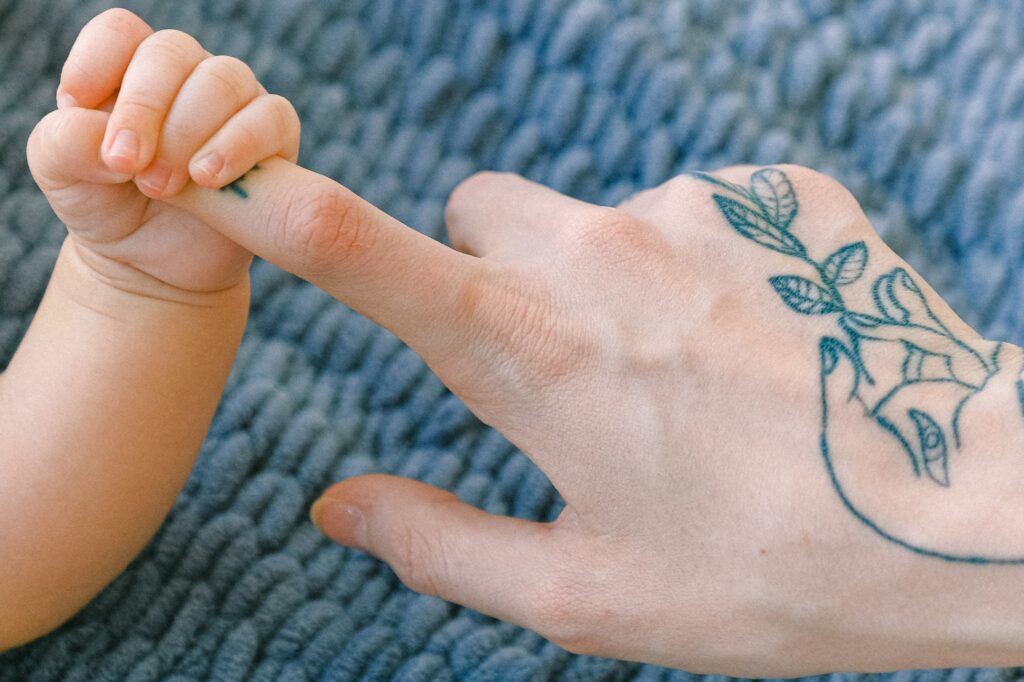WHAT IS POST NATAL DEPRESSION (PND)?
This is a very serious and debilitating condition that is associated with negative emotional changes that last for 2 weeks or longer after having a baby. It is generally accepted to occur within the first 12-months after delivery.
For some women it can happen immediately and a drastic change seen overnight; as was the case for me.
For some women, symptoms may slowly present or appear after a few months.
Post-natal depression reportedly affects 1 in 7 women in Australia and is the leading cause of maternal death in the first 12 months’ post-partum.
Perinatal mental health, which includes the period of pregnancy, affects 1 in 5 women, which can affect up to 100,000 families each year.
The effects of this condition affect women, their children, their partners and parents; which means 3 generations at least are affected in this all-encompassing condition!
This is HUGE.
Yet, why aren’t we talking about this?
Why do we suffer in silence and feel a huge sense of failure?
Why do we hide when it is a biochemical cascade that crumbles our whole world, and is of no fault of our own just like as if we were to have suffered from any other post-birth complication?
Why is there still so much taboo, hiding our wounds and a lack of transparency as to what it is like to live and breathe with day after day?
It is time to change the narrative of this across the globe.


WHAT ARE THE SYMPTOMS?
Symptoms can range from presenting with some or all of the manifestations listed below, and can occur to varying degrees between all women.
There is not necessarily a ‘one size fits all’ presentation of PND, suffice to say that all women would feel less than their optimal and thriving self.
Some women may be able to observe and identify these within themselves, or may require their partner, family or friend to identify signs and symptoms, in order to assist in taking the next step of diagnosis and treatment.
Symptoms can be;
+ Inability to concentrate or make decisions
+ Anger or frustration
+ Feeling no emotion or low and numb
+ Feeling teary or sad all the time
+ Lack of interest or pleasure in things normally enjoyable; even time with your baby
+ No motivation, no energy
+ Changes in sleep; sleeping too much or not able to sleep at all
+ Changes in eating; eating more or less than usual
+ No hope for the future
+ Feeling like you are unable to cope and things are too overwhelming
+ Feeling very teary or emotional
+ Feeling isolated, alone and disconnected from others
+ Having thoughts of self-harming or harming your baby
+ Anxiety
+ Heavy and clouded feeling in the head; cannot think clearly
+ Losing confidence
+ Fears of being alone or fear of being around people
+ Feeling like your baby does not love you or that you don’t love your baby
+ Inability to do regular everyday tasks
+ Disconnection from your baby and children; lack of connection and emotion
+ Inability to function, which makes everything feel difficult and overwhelming
+ Feeling like there is no way out, stuck, no hope or nothing will get you out of how you are feeling
+ Loss of joy, emotion and pleasure in things you normally love
WHAT ARE PREDISPOSING FACTORS FOR HAVING POST NATAL DEPRESSION?
There are some factors that may predispose someone to having postnatal depression and include, but are not limited to, the following;
+ Family history or personal history of anxiety or depression
+ Birth disappointment
+ Traumatic birth; akin to PTSD
+ Relationship difficulties within the home
+ Fertility issues or previous loss of pregnancy
+ Controlling or abusive behaviour in a partner and/or family violence
+ Underlying medical condition; e.g. thyroid dysfunction, iron levels, low vitamin B6
+ Other medication that you are taking
+ Stressful life events
+ A difficult pregnancy
+ Lack of social support or isolation
+ Financial difficulties
+ Past history of abuse
+ History of severe PMS


HOW IS PND DIAGNOSED?
If you have any or all of the symptoms listed above for a period of 2 WEEKS OR MORE, then this can be a helpful guide as to whether you need to speak with your GP, obstetrician, midwife or child health nurse.
The ‘Baby Blues’ is having similar symptoms that can arrive at the onset of milk supply production around day 3 to day 5, but the time duration is short-lived compared to PND.
This is a key differentiating factor that can help initiate a diagnosis and treatment plan to move forward.
The support team of your GP, obstetrician, midwife or child health nurse may give you a screening tool called the EPDS, or the Edinburgh Postnatal Depression Scale. This is not a diagnostic tool per se, but is a helpful screening tool to gauge how you are feeling in a measurable and quantifiable way. This can be useful considering that the symptoms can be hard to quantify without a scale or if you are having trouble articulating exactly what you are feeling.
My advice now would be this;
+ IF you are recognising that you may have postnatal depression, then first know, that you will get through this!
+ Speak up to your partner, or family member about how you are feeling
+ Then, use their support, to then SPEAK UP to your GP, obstetrician, child health nurse or midwife; whomever you feel comfortable and BEST able to be honest with how you are feeling
+ They will guide you to SPECIFIC resources and help that YOU need; but know that SPEAKING up to your health team IS the first step towards your recovery…I promise!
+ My books, guided meditations, blogs, products…are all tools that you can use ALONGSIDE Western treatment options. They are support tools to utilise IN SYNERGY with speaking to your healthcare team…They will give you access to the health professionals that you need to make your best recovery, so do not delay speaking with your health provider
